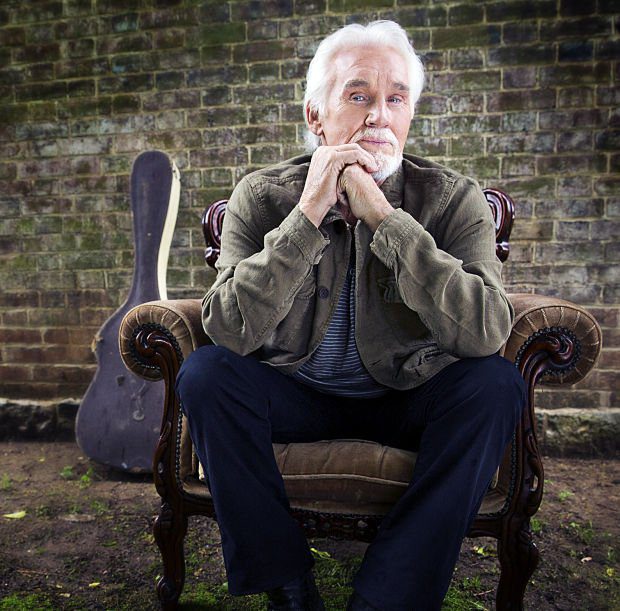Country music legend Kenny Rogers rolled into LA this week to kick off his new tour, including an appearance at the Saban Theatre in Beverly Hills.
Known for hits such as “The Gambler” and “Just Dropped In (To See What Condition My Condition Was In),” Rogers has recorded 24 No. 1 hits in both the pop and country genres. The three-time GRAMMY Award-winner has sold more than 120 million records worldwide.
He began his career playing in jazz groups before transitioning to pop and country in the group The First Edition, later renamed Kenny Rogers and The First Edition.
His latest album, “You Can’t Make Old Friends,” features a diverse range of musical influences including rock and roll, zydeco, soul and gospel.
The Malibu Times spoke by phone with the country music icon ahead of his show.
What is the difference between a Nashville audience and a Los Angeles audience?
There’s not really a lot of difference anymore. There used to be an enormous difference, because country music was really, really country before I came into it. Hank Williams and Johnny Cash, Merle Haggard, Willie Nelson and that group, who are wonderful, and most of whom are still around today. And I came in, I actually played the first 10 years of my life, I played jazz, I played upright bass. So I’m a country singer with a lot of musical influences. Ray Charles was really my hero. And I love what he did. He sang country songs, and he played ‘em R&B. And after he had a few hits, I said I’ll play country songs and I’ll play ’em R&B.
In Season 4 of the TV show “Breaking Bad” the two main characters spend part of the show wearing Kenny Rogers T-shirts. Have you noticed more people wearing shirts with your face on it after that, and if so what do you think about that?
I loved that. You know I, this is a terrible example, but I was watching one of those shows on television, it was a documentary, and it was showing all of these guys that were hijacking boats in Somalia, and there was about 30 Somalians on there with the AK-47s and the [tattoos] one of them had one of my shirts on, and I thought, “Boy, that would take the fear out of me.” I’d respond to it differently under those conditions. You know I love that, when the shirts show up in unknown places.
This is just a subjective opinion, but back in the ’70s, some of those shirts you had with the beard and the gold necklaces, you had a lot of soul going on…
You know, Ray Charles was my man. And I just loved what he did. And I would love to have more soul than I do.
Did you like to dress kind of flashy? Obviously with a lot of open—
Showing my chest hair?
Exactly, and the rhinestones. That was part of the style. Is that something that you embraced?
To me, I’ve never been a stylist, you know, I’ll wear blue jeans and sweatpants as my commitment to fashion. But, you know, it’s interesting, The First Edition didn’t really want me in their group, because I was three or four years older, and, I hesitate to say mature, because that’s not the right word, but certainly wasn’t as young spirited as they were … So I grew a beard, put an earring in my ear, put on the gold chain and grew my hair down to my shoulders. And they said, “OK, you’ll do.” And the more successful I got, the more stylish I became—stylish in the sense that I didn’t wear jeans, and didn’t wear T-shirts, and got experimental with some of the colors—but it was a great time in my life.
Have you spent any time in Malibu?
I had a home in Malibu. When I lived in LA, I had a place in Beverly Hills and a big place in Malibu. And loved it. In fact, I had a $2-million fine from the Malibu department out there. There were [sic] a set of stairs going down to the beach. And I didn’t know this, so I took the stairs out, and put what’s called a helivator [in]—it’s like an elevator that runs down the thing—and they sent me a fine for $2 million. I said, “Well wait a minute. I didn’t create access, it was already there.” [laughs]. They let me go. But that’s my memory of Malibu.

